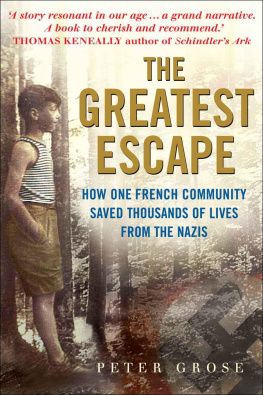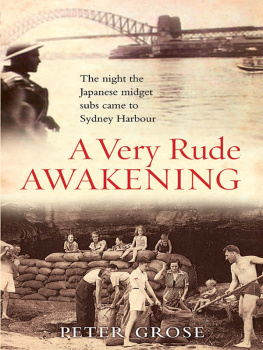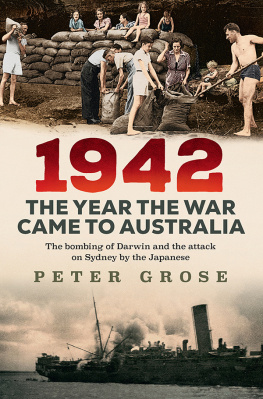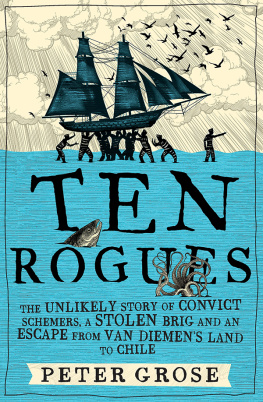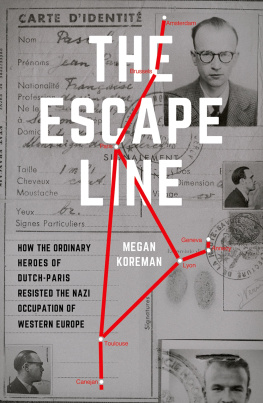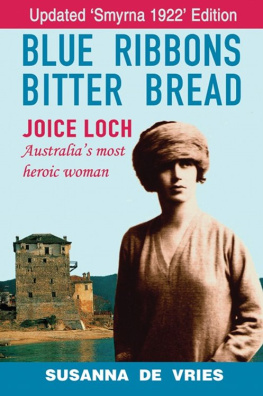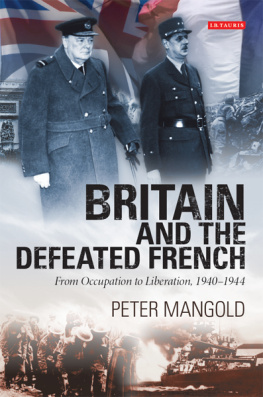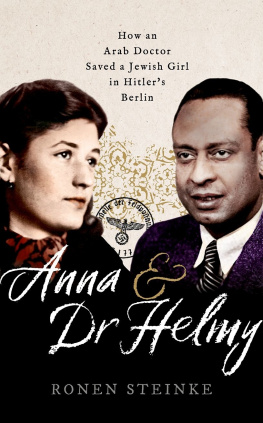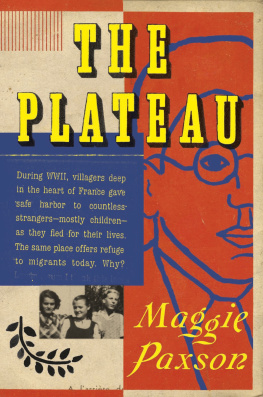The
Greatest Escape
For the people of the Plateau, yesterday and today, whose quiet courage and unfailing decency prove that yes, we can. With special thanks to my wife, Roslyn, whose fluent French helped me from the beginning to conduct interviews with French eyewitnesses from the Plateau. Further thanks to my old school friend Winton Higgins, who first gave me the idea for this book.
Other books by Peter Grose
An Awkward Truth
A Very Rude Awakening
The
Greatest
Escape
HOW ONE FRENCH COMMUNITY SAVED THOUSANDS OF LIVES FROM THE NAZIS
PETER GROSE

First published by
Nicholas Brealey Publishing in 2014
|
|---|
35 Spafield Street | 20 Park Plaza |
Clerkenwell, London | Boston |
EC1R 4QB, UK | MA 02116, USA |
Tel: +44 (0)20 7239 0360 | Tel: (888) BREALEY |
Fax: +44 (0)20 7239 0370 | Fax: (617) 523 3708 |
www.nicholasbrealey.com
Peter Grose 2014
The right of Peter Grose to be identified as the author of this work has been asserted in accordance with the Copyright, Designs and Patents Act 1988.
ISBN: 978-1-85788-626-9
eISBN: 978-1-85788-927-7
British Library Cataloguing in Publication Data
A catalogue record for this book is available from the
British Library.
Internal design by Lisa White
Maps by Janet Hunt
All rights reserved. No part of this publication may be reproduced, stored in a retrieval system, or transmitted, in any form or by any means, electronic, mechanical, photocopying, recording and/or otherwise without the prior written permission of the publishers. This book may not be lent, resold, hired out or otherwise disposed of by way of trade in any form, binding or cover other than that in which it is published, without the prior consent of the publishers.
Printed in Finland by WS Bookwell.
CONTENTS


INTRODUCTION
The drive to the village of Le Chambon-sur-Lignon, in the hilly Auvergne region of central-eastern France, brings back childhood memories of those never-ending car trips peppered with the question Are we there yet? The 80-kilometre journey from Saint-tienne, the nearest city of any consequence, starts on a broad national highway. The route soon narrows down to a local departmental road, the twisting and almost deserted D103, which scrambles up through hills, following the course of the River Lignon. Towards the end of this road, the trees give way to vast panoramas across green fields. These are the pastures of the plateau of Vivarais-Lignon. The joy of the drive is the scenery, which is stunningly beautiful, with towering dark forests lining the first part of the route, followed, in spring, by wild forget-me-nots along the verges, while vivid yellow Scotch broom flowers light up the fields and hillsides beyond. In winter it is a different story: the road disappears under treacherous snow, with only some slim poles to mark where the road ends and the ditch begins.
The villages of the Plateau are few, and usually far between. This is Huguenot country, and the Protestants fully live up to their French stereotype. The houses are built of grey granite supporting thick slate roofs, with none of the flashes of colour that distinguish the sunny houses of Provence or the cheerful chalets of the French skiing resorts in the mountains across the River Rhne. In the villages of the Plateau, few windows have the traditional flowerboxes with bright geraniums. These are solid, grey houses, and nothing flamboyant disturbs their serenity. They give the impression of being occupied by equally solid people, honest and hard-working, a world away from the bright lights of Paris, or the hedonistic bedlam of the Cte dAzur. This is not wine country, or even food country. (None of the modest handful of restaurants, bars and cafs in Le Chambon is ever likely to trouble the Michelin inspectors.)
At the small village of La Fayolle, about three kilometres outside Le Chambon, there is a graceful old farmhouse close to the road. At the time of writing, it was being lovingly restored by a young couple, Philippe and Aziza Mariotte, who run part of it as a bed and breakfast (chambre dhte in French) known as LAulne. In the years between 1940 and 1944, the farmhouse offered a different kind of hospitalitynot quite as comfortable, and a great deal more dangerous.
The buildings of LAulne form a U-shape. The Mariottes live in one wing and the bedrooms of the B&B occupy another. Across the courtyard from the Mariottes home, and still part of the same U-shape, is a large stone barn. At one end there is a tiny doorway, leading to a couple of equally tiny, linked storerooms, not much bigger than two large cupboards.
Today the storerooms are piled with junk: ancient bicycles, discarded furniture, a couple of window-frames, an old metal jug. The wooden panelling on the walls has come away in places. Cobwebs festoon the beams and the ceiling. The second room looks impossibly small for someone to sleep in, let alone live in. The entry room looks even more cramped, surely too small a workspace for a pair of forgers.
Yet in these two storerooms, and in scattered barns, farmhouses, spare rooms, hostels, guesthouses, hotels and school dormitories, literally thousands of human beings survived who might otherwise have been murdered. In the years between 1940 and 1944, something extraordinary happened here and in hundreds of farmhouses like it. In those dark days of World War II, human decency was in short supply. But on the Plateau, it triumphed.
Peter Grose
March 2014
PROLOGUE
Oscar Rosowskys childhood was nothing if not exotic. He came from a family of White Russian Jews, originally from the town of Bobruysk, 600 kilometres southwest of Moscow, in Byelorussia. Oscars grandfather had made the family fortune, building a substantial business exporting oak wood.
There was enough money to pay for graduate studies for Oscars father, so he moved to Riga, the capital of nearby Latvia. Graduate studies were a serious privilege: higher education was not for Jews in Tsarist Russia. After the Russian revolution, Oscars father settled in Latvia and took Latvian citizenship. In 1921 he married Oscars mother in the Latvian beach resort town of Libau.
Oscars grandfather had planned carefully for his three sons. The oldest son was placed in charge of one branch of the family timber business, in the port town of Danzig, then part of Germany; the youngest son managed another branch in Edinburgh, Scotland; Ruben Rosowsky, the middle son and Oscars father, took charge in Berlin. Oscar was born in Berlin in 1923.
Oscars family kept their Latvian citizenship, but in Berlin they led a very Russian life. They spoke nothing but Russian at home, though Oscar never learned to read or write Russian. At school, he learned to write as well as speak German. The Nazi Party was on the rise, and anti-Semitism was widespread in Germany; however, the family made no attempt to conceal their Jewish identity. It was barely visible anyway: they were liberal rather than strict or Orthodox Jews. Oscar Rosowsky remembers a visit from his grandfather to Berlin when the family observed the Passover ceremony and ate the Passover meal, but in general Oscars father stayed away from the synagogue, doing no more than popping in occasionally for Yom Kippur.
Next page
